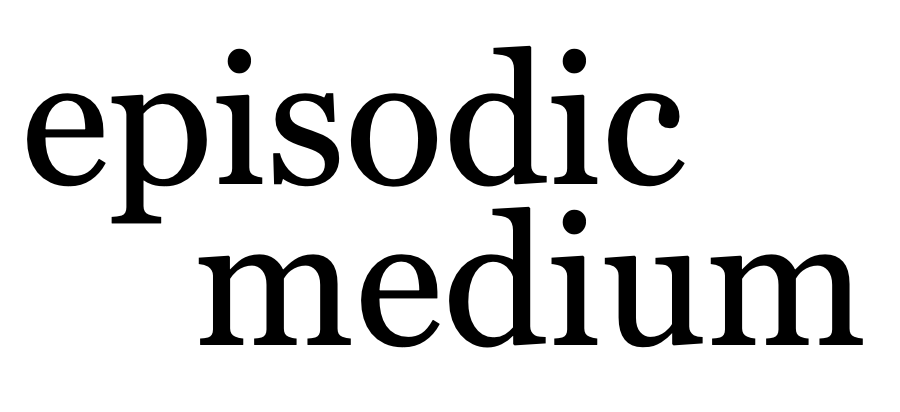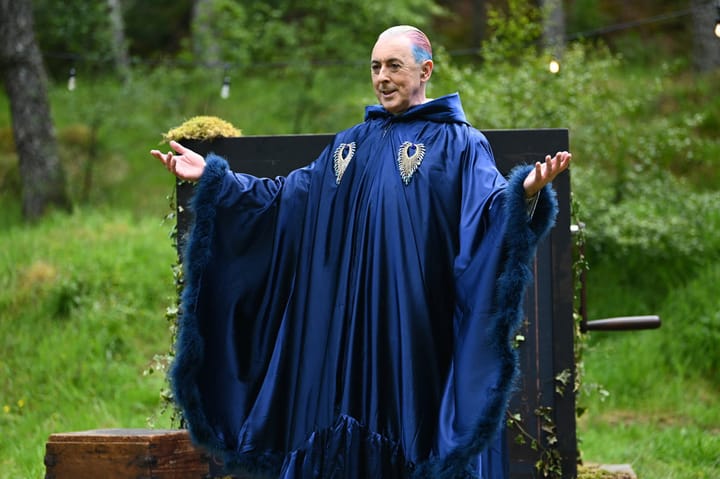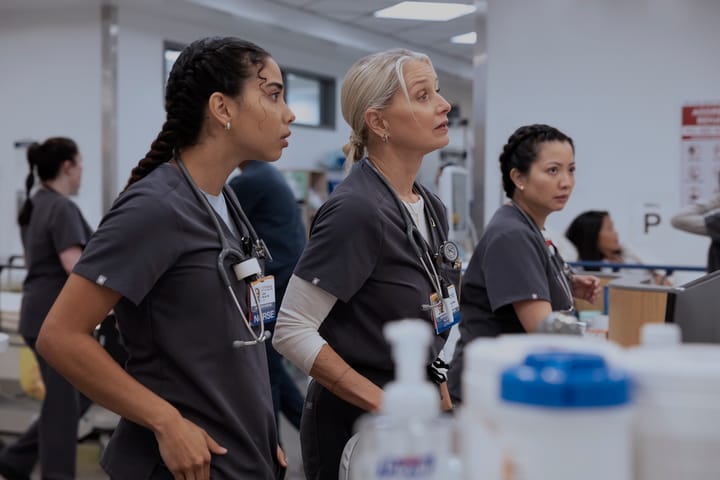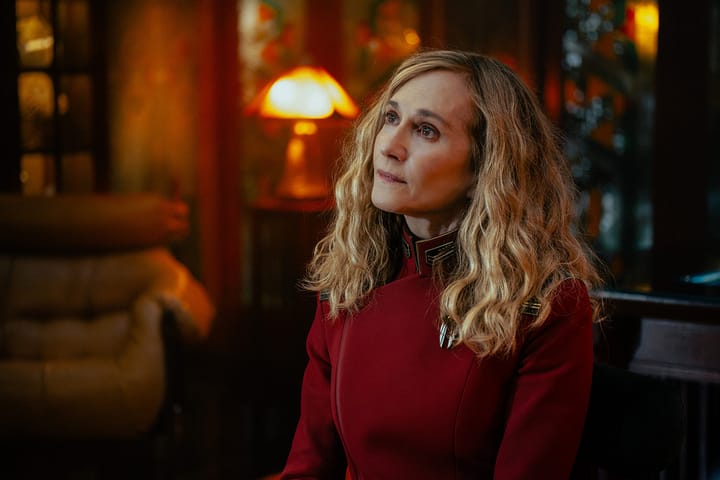Review: Heartstopper, "Talk" & "Journey" | Season 3, Episodes 3-4
The teen drama reaches a long-promised moment for Charlie's mental health journey
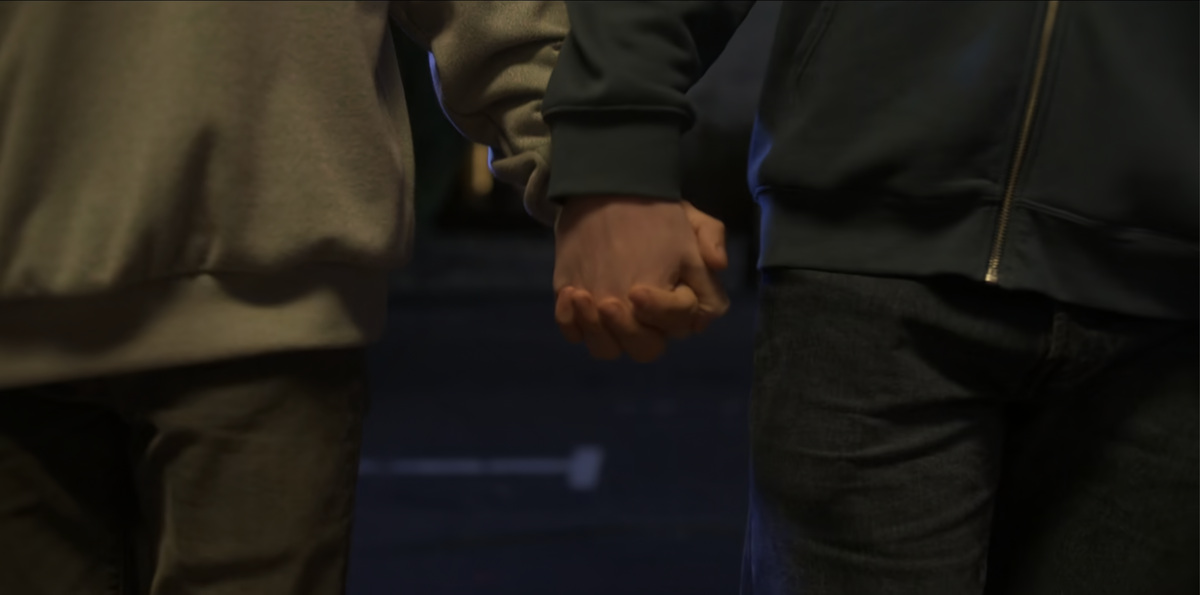
“It’s a process.”
It says a lot that this season of Heartstopper is still being framed as a “dark” turn when you consider the actual content therein. If you compare it to other dramatizations of queer coming-of-age stories that descend into violence and tragedy, or stories about mental health that use self-harm for shock value, the transition Heartstopper makes in “Talk” and “Journey” is remarkably tame. However, because the show was initially received as such a clear antidote to other kinds of queer narratives, the disruption of the “progress” of Charlie and Nick’s story is bound to feel like a larger departure than it might have been in a show without the same reputation.
The story of Charlie’s stay at an inpatient facility for people with eating disorders is a vital one to understanding the core of Heartstopper, and Oseman largely translates her narrative choices from the comics. I had wondered coming into the season how this would be handled, because in the comics the huge time gap is much less of a problem—there’s less focus on the supporting characters, so the fact we’re skipping over several months of story isn’t a huge deal. But with a TV show, time gaps have larger consequences, and risks creating an imbalance insofar as we understand every nuance of Nick and Charlie’s journey, but the other characters are on fastforward in the background.
For the most part, these two episodes work together to help avoid that pitfall. In “Talk,” the show centers a few important details to help fuel story generation within Nick and Charlie’s journals that structure “Journey.” First, it creates an important opportunity for Tao to see something wrong with Charlie and push Nick for more information, ensuring that that friendship has an anchor point when Charlie eventually chooses to go forward with treatment. Second, it resolves Isaac’s aroace story with a coming out of his own, which has thematic ties to Charlie’s struggles to open up about his mental health struggles but also make sure the whole friend group remains in focus. And third, the trip to the zoo leaves more room than the beach trip in the premiere for small character beats that Oseman can expand on during the flashback sequences in “Journey,” specifically with the sexual tension between Imogen and Sahar and Darcy’s continued exploration of her—or, as we learn in “Journey,” their—gender.
